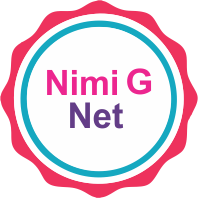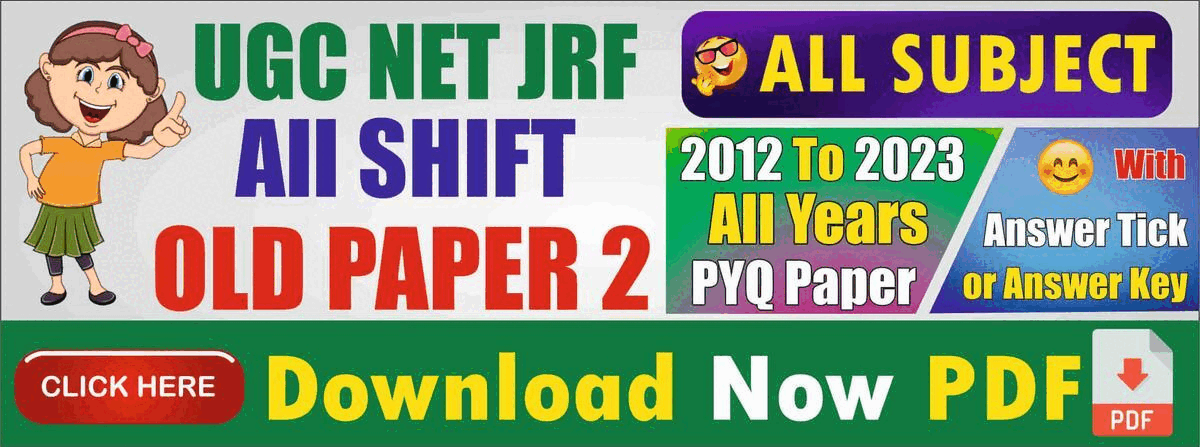Are you searching for the UGC NET Buddhist Jaina Gandhian and Peace Studies Syllabus 2023 PDF Download? Look no further, as we have compiled all the important details and tips to help you prepare for the exam.
The UGC NET Buddhist Jaina Gandhian and Peace Studies exam is conducted by the National Testing Agency (NTA) for candidates who wish to pursue a career in the field of Buddhist Jaina Gandhian and Peace Studies. The exam assesses the candidates’ knowledge in the subject and tests their eligibility for lectureship and research fellowships.
If you are planning to appear for the UGC NET Buddhist Jaina Gandhian and Peace Studies 2023 exam, it is important to have a thorough understanding of the syllabus and exam pattern. In this article, we have compiled all the important information you need to know about the UGC NET Buddhist Jaina Gandhian and Peace Studies Syllabus 2023 PDF Download
UGC NET Buddhist Jaina Gandhian and Peace Studies Exam Pattern 2023:
The UGC NET Buddhist Jaina Gandhian and Peace Studies exam consists of two papers – Paper 1 and Paper 2. Both papers are conducted on the same day, and the duration of each paper is 3 hours. The exam is conducted online, and each question carries 2 marks. There is no negative marking for incorrect answers.
The UGC NET Buddhist Jaina Gandhian and Peace Studies Exam consists of two papers: Paper 1 and Paper 2.
Paper 1:
- Duration: 3 hours
- Number of questions: 50
- Total marks: 100
- Type of questions: Multiple Choice Questions (MCQs) based on general aptitude, teaching and research aptitude, and current affairs.
Paper 2:
- Duration: 3 hours
- Number of questions: 100
- Total marks: 200
- Type of questions: MCQs based on Buddhist Jaina Gandhian and Peace Studies subjects.
Both papers are conducted in a single session with no break in between. The candidates are required to appear for both papers to be considered for the selection process.
It’s important to note that there is no negative marking for incorrect answers in UGC NET Buddhist Jaina Gandhian and Peace Studies Exam.
UGC NET Buddhist Jaina Gandhian and Peace Studies Syllabus 2023: Download PDF
The UGC NET Buddhist Jaina Gandhian and Peace Studies syllabus is divided into two parts – Paper 1 and Paper 2. Here’s a detailed syllabus for both papers.
Paper 1 Syllabus:
Teaching Aptitude:
- Teaching: Nature, objectives, characteristics, and basic requirements.
- Learner’s characteristics: Characteristics of adolescent and adult learners, and individual differences.
- Methods of teaching: Teacher-centered vs. learner-centered methods; Off-line vs. online methods.
- Evaluation systems: Elements and types of evaluation, evaluation in higher education, and grading system.
Research Aptitude:
- Research: Meaning, types, and characteristics.
- Steps of research.
- Methods of research.
- Research Ethics.
Reading Comprehension:
- Comprehension passages.
Communication:
- Communication: Nature, characteristics, types, barriers, and effective communication.
- Verbal and non-verbal communication.
- Classroom communication.
Logical Reasoning:
- Understanding the structure of arguments.
- Evaluating and distinguishing deductive and inductive reasoning.
- Verbal analogies.
Data Interpretation:
- Sources, acquisition, and interpretation of data.
- Quantitative and qualitative data.
- Graphical representation and mapping of data.
Paper 2 Syllabus:
Nta Ugc Net Buddhist Jaina Gandhian and Peace Studies Syllabus 2023 in English
UNIT-I
1) Life of Gautama the Buddha and the Origin of Buddhism (From the birth to
Mahāparinirvāṇa and the events happened thereafter) 2) Buddhist Councils (From first to fourth) and the contribution of great emperor Aśoka and Kanișka to the spread of Buddhism in India, Sri Lanka, Myanmar, Thailand, China and Tibet. 3) Schools of Buddhism: Theravāda and four Philosophical Schools (Vaibhāșika,
Sautrāntika, Vijňānavāda and Mādhyamika) 4) Pali and Sanskrit Canonical Buddhist Literature (Pāli Tipiṭaka and Sanskrit
Vaipulya Sūtras) 5) Life and Works of Buddhaghosa, Nāgārjuna, Vasubandhu and Dharmakīrti.
UNIT-II
1) Three modes of Teachings of the Buddha: Sīla, Samādhi and Prajňā 2) (i) Philosophical Concepts: Trilakṣaṇas : Anitya, Duḥkha and Anātma
(ii) Noble Truths (iii) Pratītya-samutpāda (iv) Citta-santati and Ᾱlaya-vijňāna (v) Śūnyatā and Nirvāṇa
3) Budddhist Meditation: Samatha and Vipassanā 4) Six heretical thinkers, contemporary to the Buddha and their Philosophy.
UNIT-III
1) Ancient Buddhist Educational Institutions (Mahāvihāras): Nālandā, Valabhi,
Vikramaśilā, Udantapurī, Somapurī and Jagaddala. 2) Buddhist sculpture and Architecture: Nālandā, Bodhagayā Temple, Ajantā
Caves, Sāncī Stūpa, Sāranātha 3) Places of Buddhist Pilgrimage: Lumbinī, Bodhagayā, Sāranātha and Kuśīnārā 4) Revival of Buddhism and Contribution of Anāgarika Dharmapāla, Mahāthera,
Kṛpāśaraṇa, Candramaṇi Mahāthera and Bhikṣhu Jagadīśa Kāśyapa. 5) Impact of Buddhism on Social and Economic life.
UNIT-IV
1) History of Jainism : Kālacakra (cycle of time) and the tradition of Tīrthaṅkaras
– Life-sketch of Lord Ṛṣabhadeva, Pārśvanātha and Mahāvīra 2) Jain Sects and their sub-division : Digambara and Śvetāmbara and their sub-
sects. 3) Ṇamokāra Mahāmantra, Five Preceptor (Pañca Parameṣṭhi), Prayer, Bhakti,
Upāsanā; Three Jewels : Samyakdarśana-Jñāna-Cāritra. 4) Prakrit Canonical (Āgama) Literature and their VĀCANĀS (councils). 5) Prominent Ācāryas of Jainism : Life and works of Ācārya Kundakunda, Ācārya Umāsvāmi(ti), Ācārya Siddhasena, Ācārya Akalaṅka svāmi, Ācārya Haribhadra Sūri, Ācārya Vīrasena Svāmi, Ācārya Jinasena, Ācārya Hemchandra Sūri and Ācārya Yaśovijay.
UNIT-V
1) Vows : vows of Householders- Aṇuvratas, Guṇavratas and Śikṣāvratas; Great Vows (Mahāvratas) of Monks- Ahiṃsā (non-violence), Satya (truth), Asteya (non-stealing), Braḥmacarya (celibacy) and Aparigraha (non-possessiveness). 2) Seven elements and six substance; Theory of Karma and its classification,
Puruṣārtha. 3) The concept of Knowledge and its classification. 4) Anekāntavāda and Syādvāda; Jain Yoga and Dhyāna. 5) The concept of Liberation in Jainism.
UNIT-VI
1) Jain Art (Śilpa) and Architecture : Jain caves and temples of Southern India,
Jain Temples of Khajurāho, Devagarḥa, Pālitānā and Mount-Ābu. 2) Jain Sculptures, Paintings and Jain Iconography : important Jain Sculptures
available in India, Idols received from Śravaṇabelagolā and Mathurā.
-3-
3) Impact of Jain Religion on Society : Vegetarianism (Śakāhāra) and Charity
(Dāna); Status of women in Jain Religion. 4) Environmental and Ecological thoughts in Jainism; Jainism and Science. 5) Main Centres of Jaina Learning: Śravaṇabelagolā, Jesalamera, Ahmedabad,
Varanasi, Vaishali, Koba, Ladnun, Jaipur, Delhi; Jainism in abroad.
UNIT-VII
1) Mahatma Gandhi:
(i) Family background (ii) Early life and education in India and England (iii) Impact of various Religions and their Scriptures
2) Gandhi in South Africa:
(i) The origin of Satyagraha (ii) Struggle against Racial discrimination, injustice and exploitation (iii) Impact of Leo Tolstoy, John Ruskin, Henry David Thoreau, Raichandra Bhai
etc.
Unit-VIII
1) Foundations of Gandhi’s Social, Political, Economic and Religious Thought:
(i) Views on Social Justice, Social inequalities, Caste System and
Untouchability. (ii) Women’s Problems and Empowerment (iii) Gandhi’s views on Truth, Non-Violence, Satyagraha and the Theory of
ends and means
2) State and Democracy:
(i) Panchayat Raj (ii) Parliamentary Democracy, Sovereignty, Freedom, Spiritualization of
politics (iii) Human Rights and Duties.
-4-
3) Fundamentals of Gandhian Economics:
(i) Critique of Modern Western Civilization, Labour – Capital Relations (ii) Small-Scale Cottage Industries (iii) Constructive Programme and Sustainable Development.
Unit-IX
1) Gandhi’s Role in Freedom Movement:
(i) Champaran (ii) Non-Cooperation (iii) Ahmedabad Mill Strike, Dandi March (iv) Bardoli and Kheda Satyagrahas (v) His Role in Vykom Satyagraha and Quit India Movement.
2) Gandhi and Partition of India.
Unit-X
1) Peace Studies:
(i) Understanding Peace – Coercive and Non-Coercive Approaches, Culture of
Peace. (ii) The problem of War: Causes, Types, Attributes and Theories of War. 2) Major Peace Movements:
(i) Pacifism, Civil Rights Movement in U.S.A. Campaign for Nuclear
Disarmament by various Agencies. (ii) Green Peace Movement. (iii) The contemporary Global Issues regarding World War and Quest for Peace. (iv) Legacy of Peace Builders: Mahatma Gandhi, Martin Luther King (Jr.),
Daisaku Ikeda and Nelson Mandela.
3) Conflicts:
(i) Concept, Nature and Causes, Methods of Conflict Resolution.
(ii) Agencies of Conflict Resolution, UN Peace Keeping, Peace Building, Peace Education, Adjudication, Role of Shanti Sena, Track–II Diplomacy, etc.
4) Human Security and Terrorism:
(i) The problem of Terrorism
(ii) Structural and State Violence
Paper 2 Syllabus Download Pdf:
Ugc Net Buddhist Jaina Gandhian and Peace Studies Syllabus 2023 in English
Ugc Net Buddhist Jaina Gandhian and Peace Studies Syllabus 2023 in Hindi
Preparation Tips for UGC NET Buddhist Jaina Gandhian and Peace Studies Exam 2023:
Here are some tips for preparing for the UGC NET Buddhist Jaina Gandhian and Peace Studies exam 2023:
- Understand the syllabus and exam pattern thoroughly.
- Make a study plan
- Refer to standard textbooks and study materials recommended for the exam.
- Practice previous year question papers and mock tests.
- Focus on time management and accuracy while attempting the questions.
- Take regular breaks and maintain a healthy lifestyle to avoid burnout.
- Join coaching classes or online courses if necessary.
- Stay updated with current affairs related to the Buddhist Jaina Gandhian and Peace Studies field.
Important Points:
- The UGC NET Buddhist Jaina Gandhian and Peace Studies exam is conducted by NTA for candidates who wish to pursue a career in Buddhist Jaina Gandhian and Peace Studies.
- The exam assesses the candidates’ knowledge in the subject and tests their eligibility for lectureship and research fellowships.
- The exam pattern of UGC NET Buddhist Jaina Gandhian and Peace Studies 2023 includes multiple-choice questions and is conducted in online mode.
- The marking scheme of the exam is +2 for a correct answer and no negative marking for incorrect answers.
- The duration of the exam is 3 hours, and the number of questions is 150.
- The UGC NET Buddhist Jaina Gandhian and Peace Studies Syllabus 2023 PDF Download is an important document that provides a detailed outline of the topics that will be covered in the exam.
- To download the syllabus, candidates can visit the official website of NTA and click on the link provided.
- The syllabus is available in PDF format and can be downloaded for free.
- The syllabus is divided into nine units, each covering a specific topic related to Buddhist Jaina Gandhian and Peace Studies.
- To prepare for the exam, candidates must understand the syllabus, make a study plan, practice previous year question papers, join a coaching institute, take mock tests, and revise regularly.
FAQs:
- Is there any negative marking in the UGC NET Buddhist Jaina Gandhian and Peace Studies exam 2023? Ans: No, there is no negative marking for incorrect answers.
- Can I download the UGC NET Buddhist Jaina Gandhian and Peace Studies Syllabus 2023 PDF from the official website? Ans: Yes, the syllabus is available for download on the official website of NTA.
- What is the duration of the UGC NET Buddhist Jaina Gandhian and Peace Studies exam 2023? Ans: The duration of each paper is 3 hours.
Also Check:
Conclusion:
In conclusion, the UGC NET Buddhist Jaina Gandhian and Peace Studies exam 2023 is a crucial opportunity for aspirants who want to pursue a career in the teaching or research field. To crack the exam, it’s essential to have a clear understanding of the syllabus, exam pattern, and prepare accordingly. With a comprehensive understanding of the UGC NET Buddhist Jaina Gandhian and Peace Studies Syllabus 2023 PDF download and proper preparation, you can clear the exam with flying colors.





